|
Iron Foundries
Vast numbers of iron castings were
produced in the Black Country by the many foundries that
were a familiar sight in the area. Cupola furnaces formed an
important part of the local landscape, and Walsall had its
fair share of them.
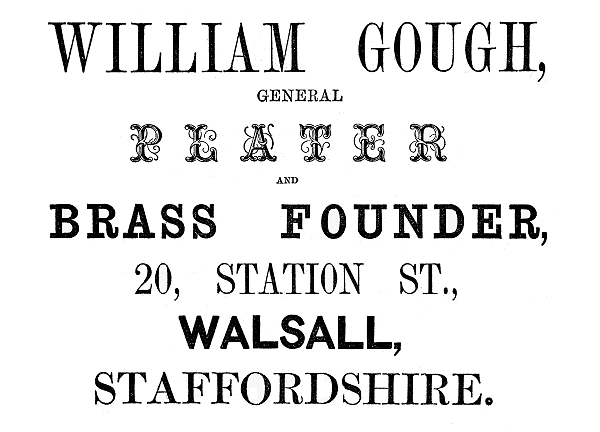
An advert from 1861.
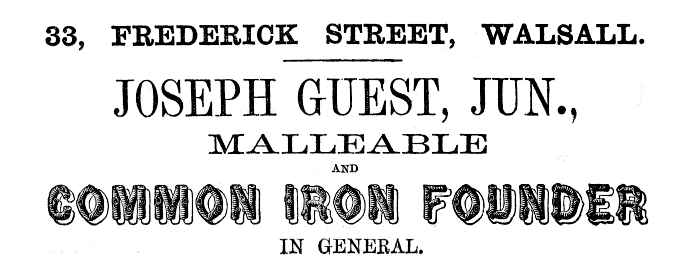
An advert from 1861.
Pigot & Company’s National Commercial
Directory published in 1828 lists six iron founders:
|
James Glover, Ablewell Street
John
Glover, Birmingham Road
John James, Ablewell Street |
Parks & Ottway, Goscote
Samuel Perks, Hall Lane
James Thornhill, Church Street |
|
| By 1851 there were 25 foundries, many of which were producing items for the local buckle, saddle, bridle, and
horse furniture industries, but by the later part of the
19th century the items were more diverse. In the 20th
century the industry supplied castings to car, motorcycle,
and bicycle manufacturers; to electrical engineering
companies; to shipbuilders, and to industries of all kinds. |
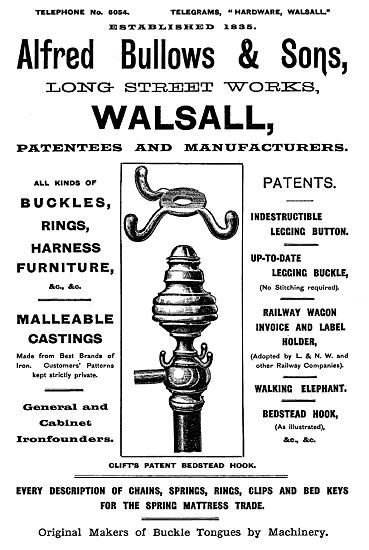
An advert from 1896. |
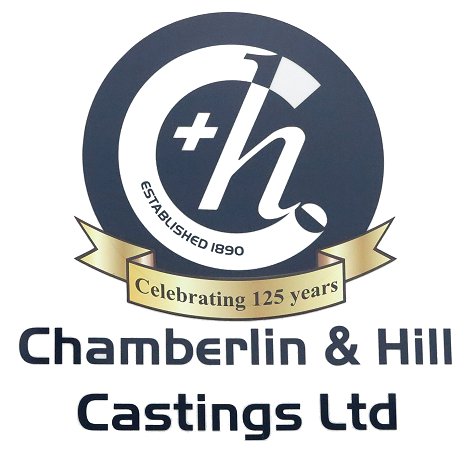
|
One of the longest surviving foundries
in Walsall was Chamberlin & Hill in Chuckery Road. The company was established in 1890, and like
most of the local foundries must have produced a wide range
of castings to order. The earliest known products are black
money boxes.
Mr. Chamberlin and Mr. Hill's
factory originally specialised in thin-section
castings used for toy making, electrical switchgear
and domestic hardware. A further foundry was set up
in Lichfield in 1902 making larger castings for
machine tools, mainly used in the textile trade.
Mr. Chamberlin and Mr. Hill had
retired by 1912. During the First World War the
factory produced munitions.
About this time the Bather
family took an increasing stake in the business and
completely took over in the 1920's, running the
business until 1946 when it became a limited
company.
Products then became food
mincers and cast iron idlers for the coal and
quarrying industries. |

The offices at the heritage open day in
September 2014.
|
In 1967 Chamberlin & Hill
bought a foundry that made malleable castings in
Bloxwich. In 1999 Russell Ductile Castings Limited
of Scunthorpe was acquired, followed by Chamberlin &
Hill Castings Limited of Leicester in 2004.
In 2005 the Bather family
sold their share in the company, which in 2007 became Chamberlin plc.
The Walsall foundry then concentrated
on precision
castings up to 5kg in grey iron, to an extremely high
specification, mainly for German car manufacturers. One of
the specialities was housings for turbochargers used in
diesel engines.
In its first 100 years,
Chamberlin & Hill's turnover grew from £1,840 in
1890 to £20 million in 1990. In 2004/05 turnover was
£42 million. Success continued until recent times
when orders were few and far between. |
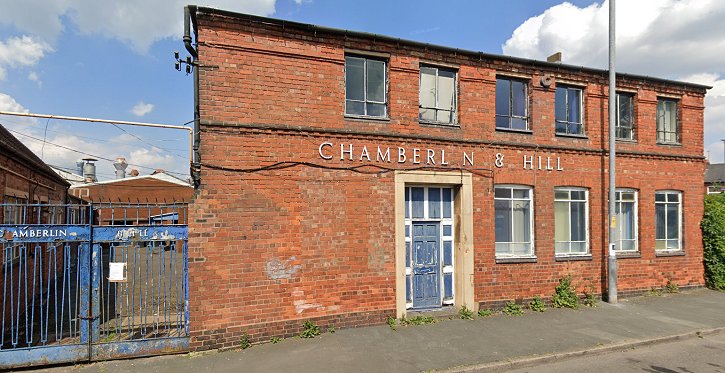
The original office block and front
entrance to the site in Chuckery Road.
|
The business was forced to pay over £1
million to five nearby residents who had decided to take
legal action against the business for dust pollution.
Chamberlain and Hill ceased trading in
May 2024 with the loss of 78 jobs in Walsall and 51 jobs in
Scunthorpe.
The iron casting and machining firm, Castings PLC, based in
Brownhills, bought the fixed assets and stock of Russell
Ductile Castings Limited and demolition at the Walsall site began in
April 2025. Little is now left of what was one of Walsall's most important foundries.
|

Scrap metal ready for the furnace.

The furnace building.

The cupola.

Filling a ladle in the factory.
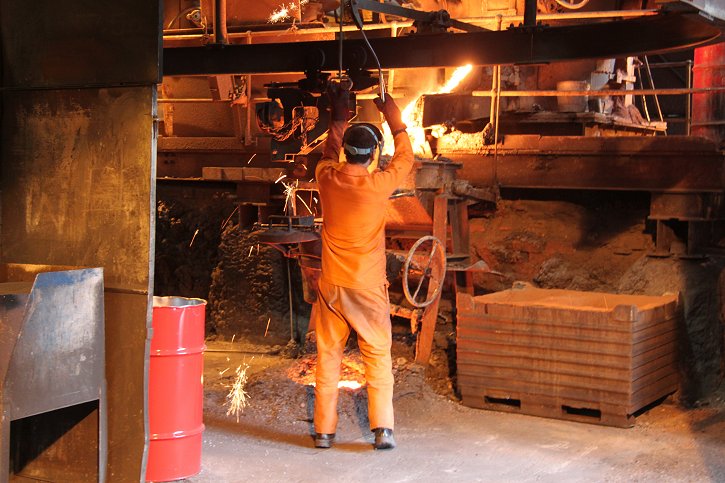
Another view of a ladle being filled in the
factory.
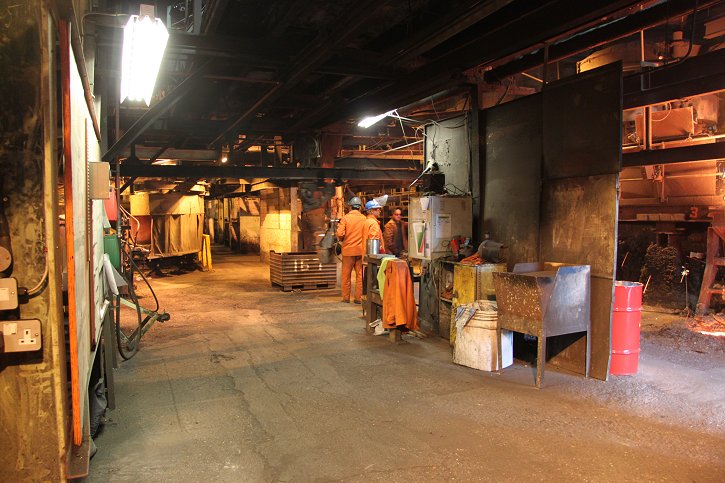
Part of the factory.
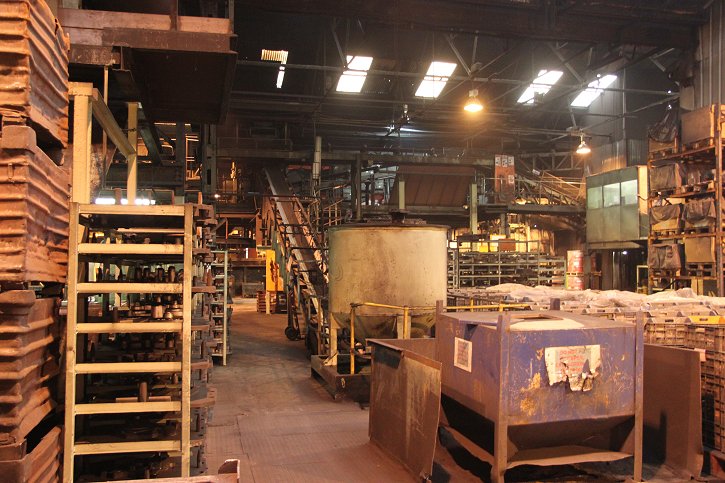
Part of the factory.
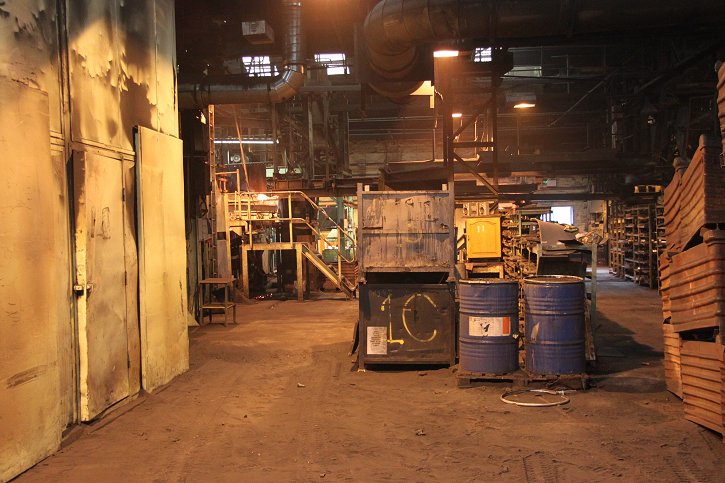
Part of the factory.
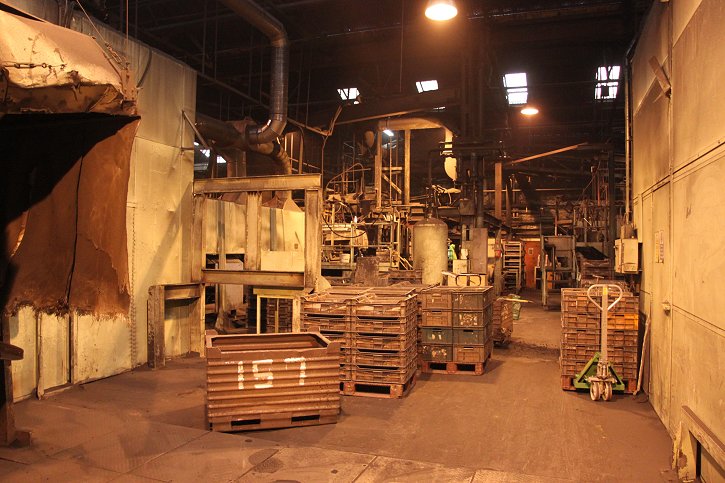
Part of the factory.

Roughly cleaning up new moulds.

Roughly cleaning up new moulds.

Another part of the factory.
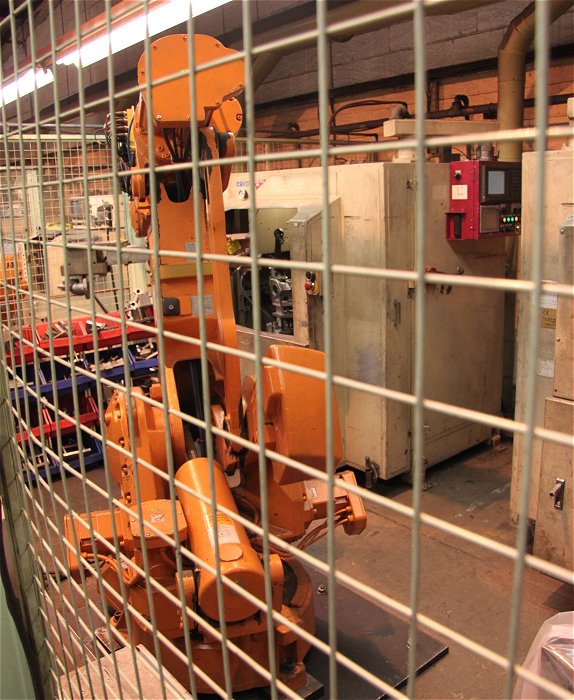
Moulds were accurately machined by caged
robots.
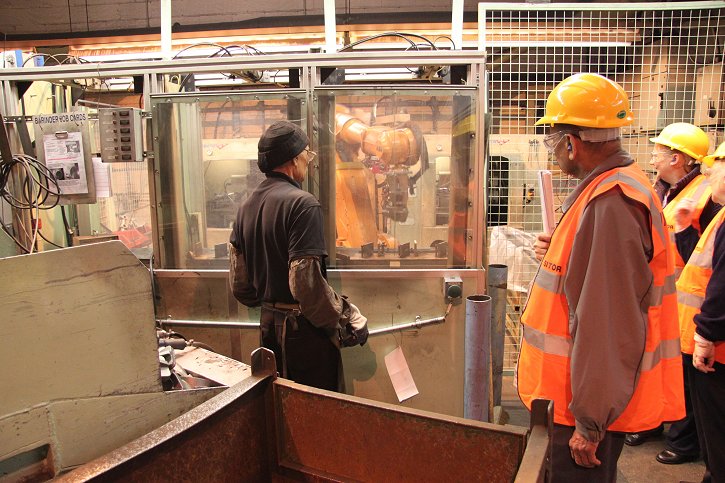
Part of the line of robots.
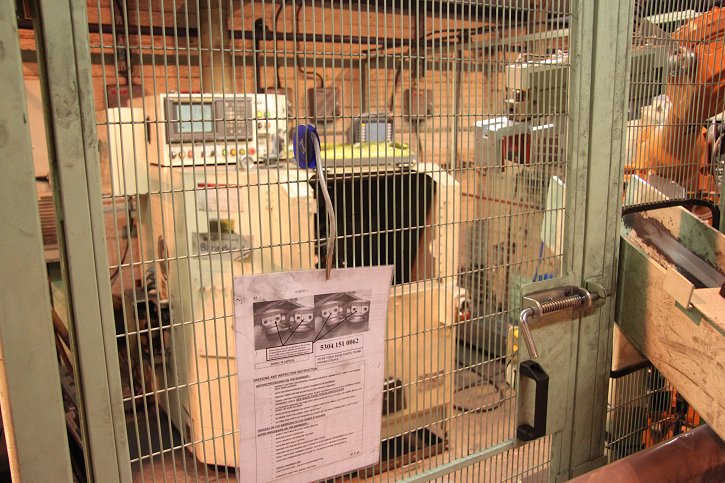
Part of the line of robots.
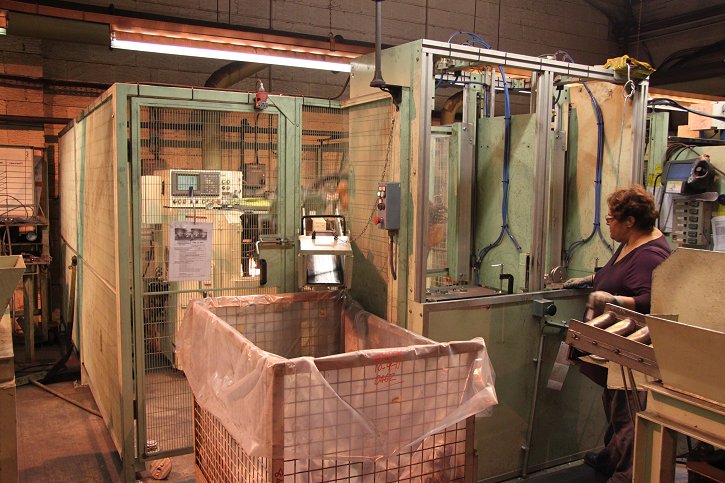
Retrieving machined components from the
robots' cages.
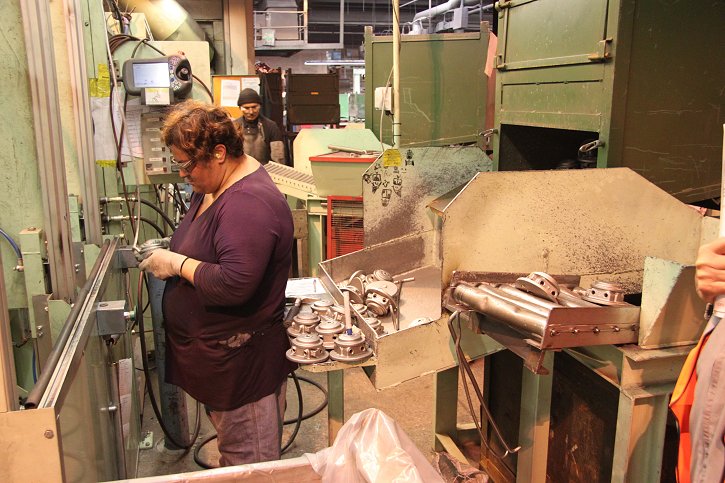
Retrieving machined components from the
robots' cages.
| After machining, each finished component was
extremely accurately measured using a computerised laser
measuring machine. |
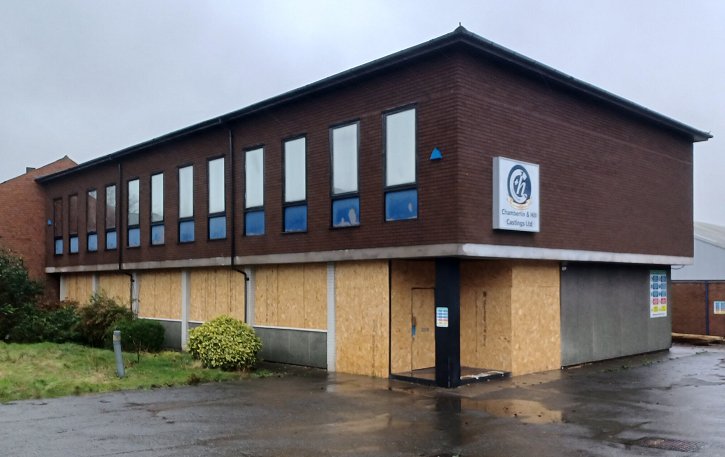
The derelict office building in 2025.
| It had been an unforgettable day visiting Chamberlin
and Hill's Foundry at the heritage open day in September
2014. On that occasion it was impossible to imagine that
in just under ten years it would all come to an end. In
May 2024 Walsall lost an extremely important industrial
asset. |
Luckily other foundries still operate in the town,
including
H. Goodwin (Castings) Limited of Stafford Street, founded by
Mr. Goodwin in 1919.
The malleable and grey iron foundry produces engineering
castings in malleable, ductile, aluminium and grey iron for
a wide range of industries. |
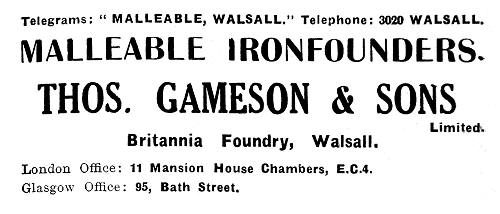
An advert from 1935.
|
| The foundry has two 350kg and one 200kg Inductatherm medium frequency induction melting
furnaces, and offers pattern design, and prototype
manufacturing facilities. |
|
A relatively recent company is Majorfax
Limited, in Charles Street. It was established in 1984 and
supplies castings in grey and ductile iron, carbon and
stainless steel, aluminium, and brass.
Another foundry is J.
W. Bonser (Walsall) Limited in Albert Street. The firm
manufactures high pressure zinc die-castings, and has
comprehensive machining, finishing, polishing, chrome
plating, gold plating and powder coating facilities.
Finished products include bathroom fittings. |
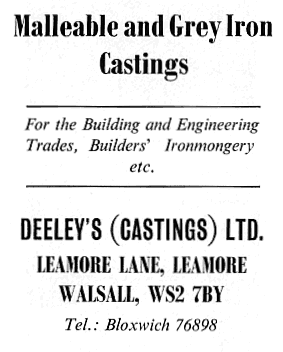
An advert from 1974. |
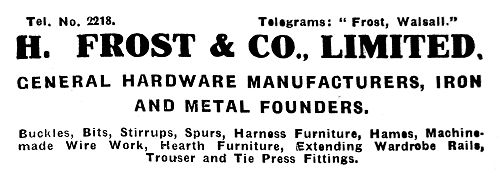
An advert from 1935.
| Castings Limited in Selborne Street, Walsall
were a long-established business, which opened around 1850.
The firm produced high quality castings in whiteheart and
blackheart malleable iron. Customers included car
manufacturers, motorcycle manufacturers, trailer
manufacturers, agricultural machinery manufacturers, and
general engineering companies.
The firm also produced iron castings with special
properties such as high strength and good shock resistance
that were suitable for flame hardening or arc welding. |
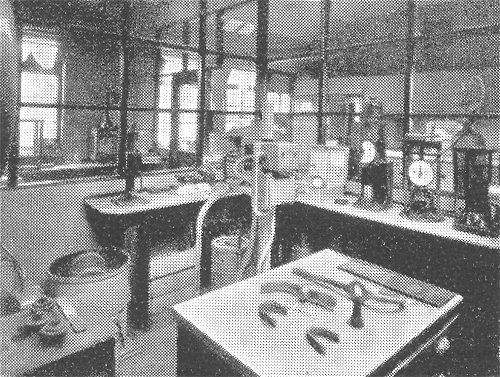
A corner of the laboratory at Castings
Limited. |
|
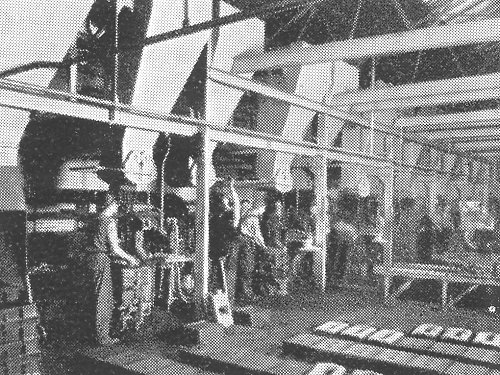
A corner of Castings Limited's
foundry. |
The firm specialised in the latest types of annealing to
ensure consistent physical properties of castings.
During the process the temperature was controlled by a
continuous temperature recorder, and test samples were
examined under a microscope.
All raw materials had to meet an exacting specification,
and were checked in the laboratory.
The latest rotary furnaces were used to produce the iron.
which was cast in power moulding machines. |
| After annealing, the castings were shot-blasted using
airless centrifugal machines, so that they were absolutely
free from sand, and suitable for enamelling. The Selborne
Street factory is now occupied by Presco Components Limited. |
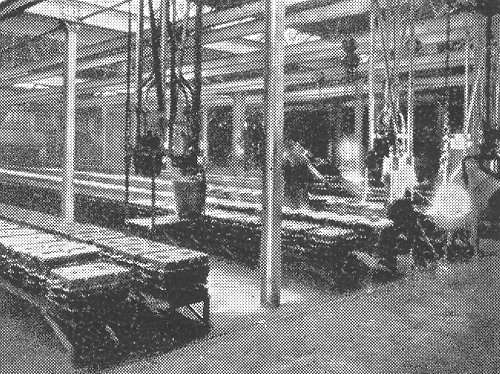
Another view of Castings Limited's
foundry. |
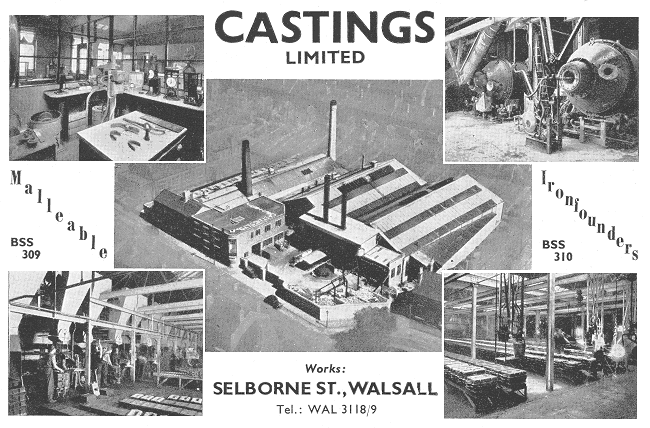
An advert from 1954.
| Another well-known Walsall ironfounder was Sydenham &
McOustra Limited which started at Beacon Foundry, Beacon
Street, Walsall in about 1900. The firm specialised in light
castings for electrical engineering companies, and the
textile trade. The foundry was slightly unusual in that as
well as producing a range of castings for its customers, it
also produced a range of finished goods including small
carpenter's tools, adhesive and tape dispensers, toys, and
money boxes. The up-to-date factory included a rest room,
and shower baths for the employees. |
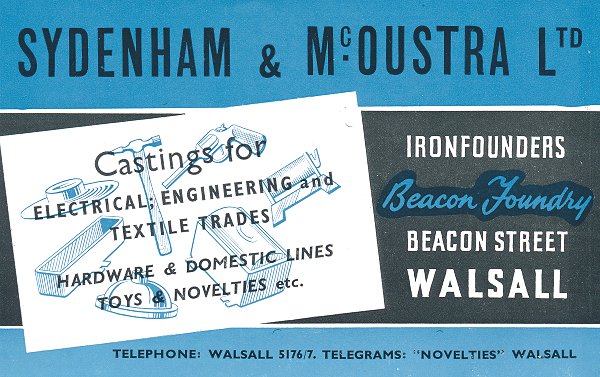
An advert from 1954.
| Non-Ferrous foundries Many of the
non-ferrous foundries in the town produced horse furniture,
particularly after the introduction of nickel casting. They
supplied the local bit makers, stirrup makers, harness
furniture makers, and horse brass makers.
|
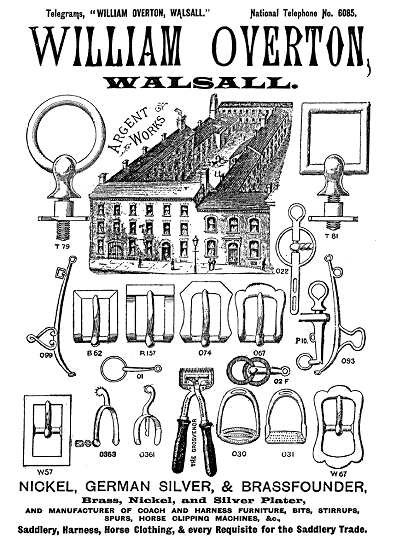
An advert from 1896.

An advert from 1865.
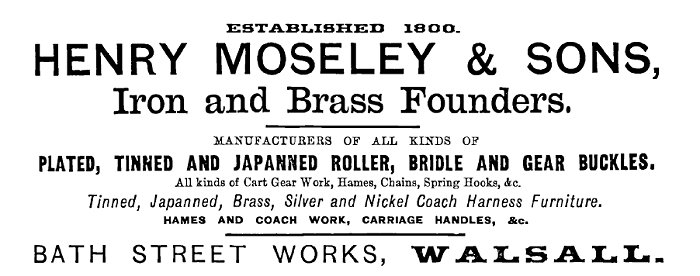
An advert from 1896.
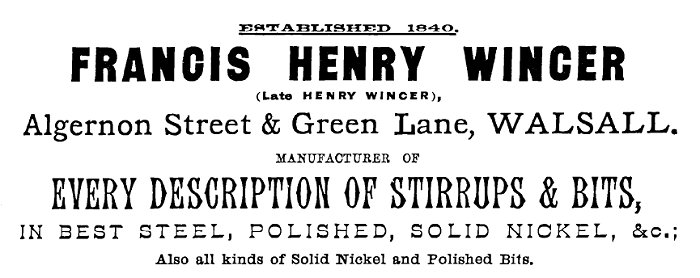
An advert from 1896.
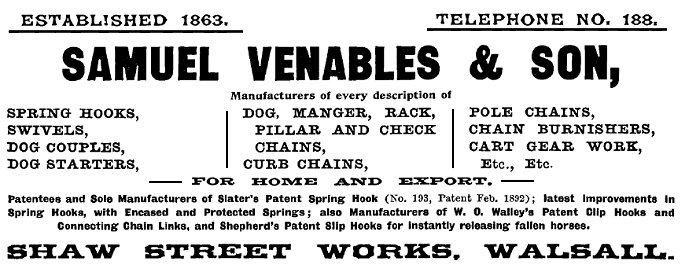
An advert from 1904.
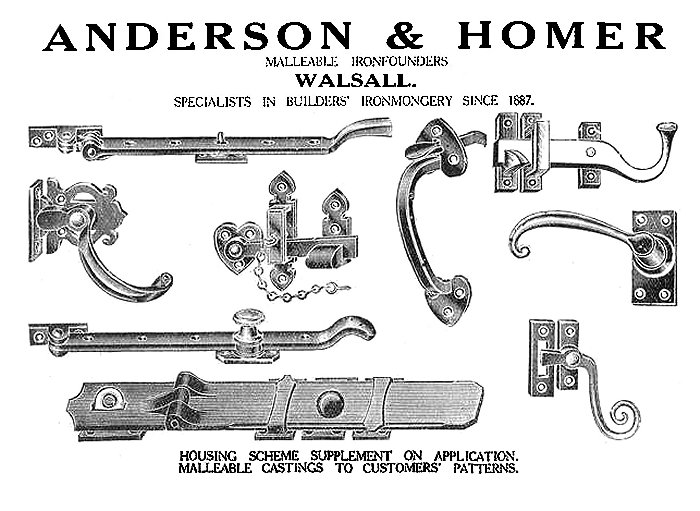
An advert from 1926.
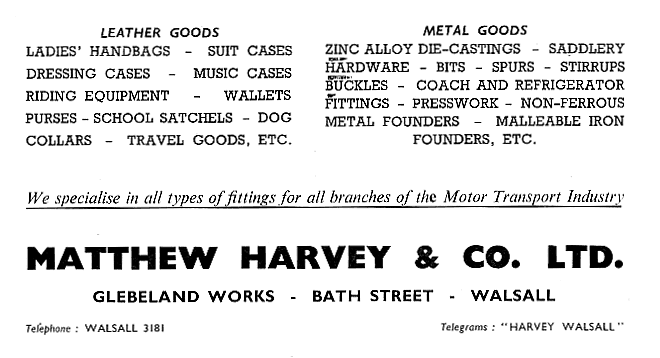
An advert from 1953.
|
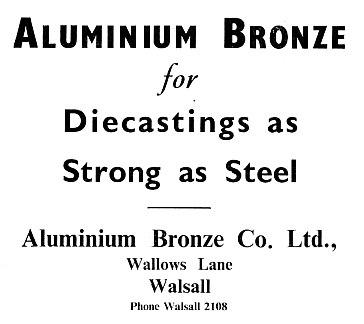
An advert from 1953. |
Pigot’s Staffordshire Directory of 1842
lists 23 brass foundries, and 16 brass and iron casters,
many supplying the 41 stirrup makers, 22 spur makers, 5
spur rowel makers, and 122 bridle bit makers that were in the town
at the time. By
1935 (Walsall Red Book and Directory) the numbers had
reduced. There were 18 brass and nickel silver foundries,
and 11 bridle bit makers, 11 stirrup makers, 10 spur makers,
and 1 spur rowel maker. |
| Some of the horse furniture makers
diversified into other areas, eventually abandoning
horse-based products. Joseph Withers & Sons Limited
originally made harnesses, but in the 1930s began to produce
non-ferrous castings and fittings for holloware, bathrooms,
and cars. J. & J. Wiggin Limited began making bridle bits in
Bloxwich, and later turned to stainless steel tableware.
|
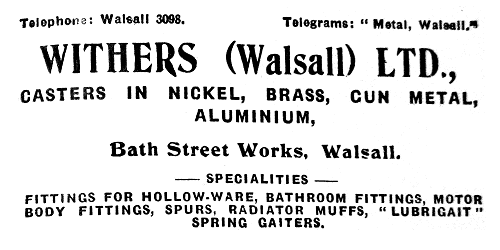
An advert from 1935. |
| Another foundry is Lowe Brass, based in
Clarendon Street, Bloxwich.
The firm was established in 1965
and produces brass name plates, rally plaques, vintage car
plaques, canal and boat makers plaques, horse brasses, paper
weights, door knockers
etc.
|
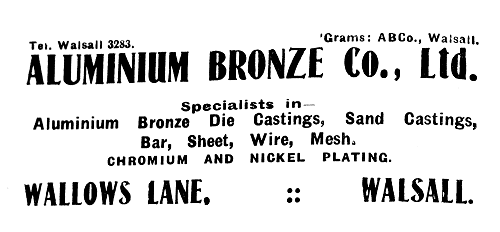
An advert from 1935.
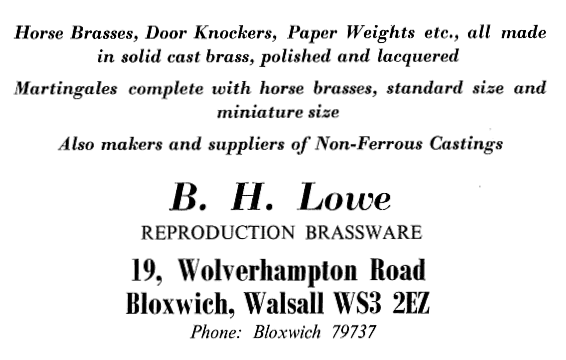
An advert from 1974.
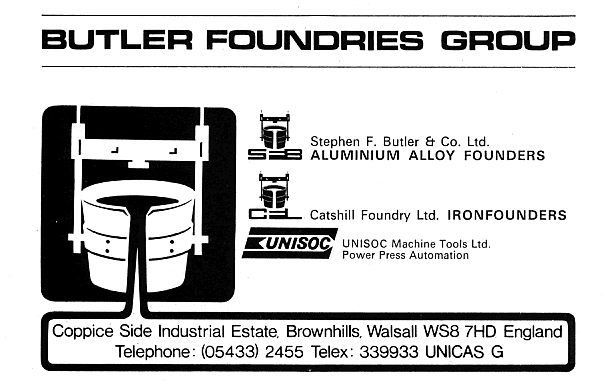
An advert from 1974.
 |
Return to
the
previous page |
|